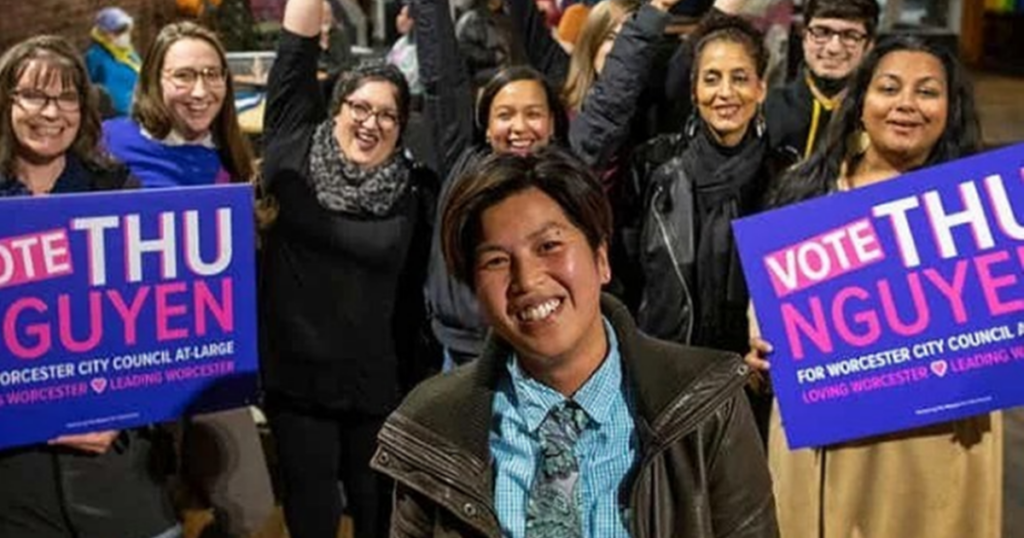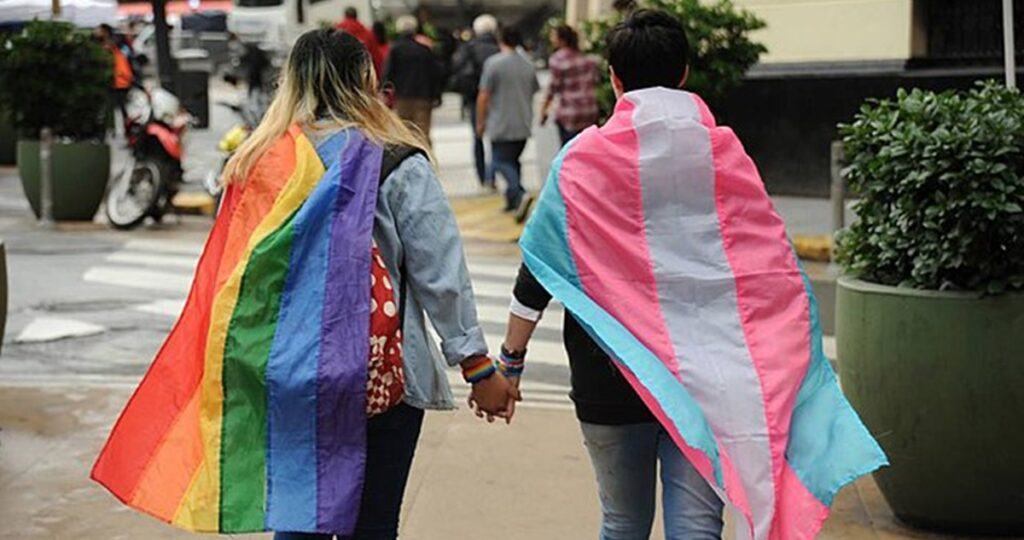

Challenging “Buggery”
A lawsuit filed by a South Carolina man last month is putting the state’s anti-sodomy laws and their use in criminalizing LGBTQ individuals as well as the lifetime-without-review rules for sex offenders in South Carolina back under the spotlight. The man, identified in the filing as “John Doe,” is challenging in order to have his sex offender status changed after being convicted under South Carolina’s anti-sodomy statutes, often referred to as the “buggery” law, over 20 years ago.
According to the filing, Doe was convicted for having consensual sex with a man in 2001 under the South Carolina statute. He was later pardoned of the charge in 2006, three years after the U.S. Supreme Court struck down similar laws in Texas and deemed them unconstitutional nationwide. Despite the pardon, Doe has remained a registered sex offender in South Carolina.
The ACLU of South Carolina and Los Angeles lawyer Matthew Strugar filed the suit on behalf of Doe in U.S. District Court on December 22, aiming to have Doe removed from the state’s sex offender registry and prevent others convicted under the state’s anti-sodomy laws from having to register as sex offenders.
The filing claims that South Carolina’s “Buggery” law “is indistinguishable in all material aspects from the Texas and Georgia statutes declared unconstitutional” in Lawrence v. Texas. The complaint claims that “at least 18 other people” have been forced to register as sex offenders similar to Doe in the state.
“South Carolina continues to flout the clear holding of [Lawrence v. Texas] by requiring our client, John Doe, to register as a sex offender for the ‘crime’ of having consensual gay sex with another man,” the ACLU of South Carolina said in a statement. “This is wrong, violates well-established constitutional law and must be stopped. Being gay isn’t a crime, and having gay sex isn’t a sex offense. Enough is enough.”
Requirements to register as a sex offender are not insignificant, (See below), and with restrictions on movement, where they can live and work, as well as the public access to home locations and waiving of many rights, in the case of South Carolina forever, a requirement to register as a sex offender can and does effectively ruin many lives, many as in this case, inappropriately remanded to the status in the first place.
Previous Legal Battles
South Carolina is one of three states (Mississippi, Idaho) that still has anti-sodomy statutes on the books despite the 2003 Supreme Court ruling. As Strugar told the Post and Courier, reciprocity laws associated with sex offender registries require people found guilty of sodomy in those states maintain their sex offender status if they move to nearly any other state.
Strugar fought this issue previously, representing Montana resident Randall Menges in his legal battle to be removed from Montana’s sex offender registry. Menges was forced to register as a sex offender after moving to Montana from Idaho, where he spent seven years in prison for having consensual sex with a man in the mid-1990s. Menges remained on the sex offender registries in Idaho and Montana since his 1994 conviction.
Reciprocity laws associated with sex offender registries require people found guilty of sodomy in those states maintain their sex offender status if they move to nearly any other state.
Menges won his case, with U.S. District Court Judge Dana Christensen stating that “Montana has no rational basis for forcing Menges to register as a sexual offender.”Strugar sees the parallels between the cases of Menges and Doe. “This kind of overt, state-sanctioned homophobia would have been surprising 30 years ago. Today it is shocking. And it is unconstitutional,” Strugar said in a statement.
The Montana Attorney General’s Office is appealing the ruling. Menges and another man also have a similar lawsuit currently pending in Idaho challenging its reciprocity laws. Doe’s complaint names South Carolina Attorney General Alan Wilson and State Law Enforcement Division Chief Mark Keel as defendants.
Doe’s filing highlights Menges’ case as an example of successful challenges to anti-sodomy and reciprocity laws in other states that effectively criminalizes LGBTQ sexual activity. “This practice needlessly subjects law abiding citizens to the horrors of the sex offender registry and demonstrates a deeply troubling animosity by the state towards the gay community,” said Allen Chaney, ACLU of South Carolina legal director.
The South Carolina Attorney General’s Office declined to comment citing the office doesn’t comment on pending litigation.
Sex Offenders in South Carolina, for Life
With the ACLU case documents below is the form signed by sex offenders in South Carolina. Once someone has been identified for. thelist it is for a lifetime, as is frequently a requirement for electronic surveillance. In South Carolina there is no process, no scheduled check in to analyze if the person needs to remain on the list, and no way to petition for removal, no matter what offense has been committed. This was recently found unconstitutional but still no changes haver been made. Among the requirements many are particularly onerous and make finding living space and work next to impossible in some places.
This is not incidental to require of someone who was convicted of a crime that is not a crime, and in fact is onerous and unnecessary according to clear research across the country for. the vast majority of people forced to register.
Sex offenders have to register twice a year, in person, with the sheriff. Their names , offenses and addresses are on local and national lists and maps anyone can consult via the internet. If they move, through state reciprocity, they are forced to still register in other states. Many are victimized lacking safety and via the details on the internet.
In South Carolina, sex offenders give up rights to question tests to determine if they are drunk and waive all requirements for warrants to search homes, cars, phones, computers etc at any time as well as waiving rights to confidential treatment and therapy.
They have to report where they are living, and they have to sleep there every night. And this place has. to be the slivers and outskirts of towns that are 1000 feet from any place young people might frequent AND any places that sell goods or services related to sex activity. This includes all schools, day care centers, playgrounds, arcades, public pools and beaches, shopping malls and theaters as well as adult book stores, strip clubs, massage parlors etc.
(In many cities this reduces the areas in which it’s possible to live to such an extent that many are made homeless. Homelessness and having no work, i.e. isolations have been shown to be among the few factors that actually increase recidivism among sex offenders. The rate of recidivism for these crimes is around 8% already though, compared to 67% for all other offenses. have been shown to be among t
Sex offenders can have no contact with anyone under 18 outside the immediate family.
In fact there are three myths about sex offenders that have been studies significantly with results conclusively showing that:
A. Stranger Danger is not a thing. Ironic in that 80% of sexual assault victims know their assaulters, 93% if just the child victims.. The last numbers from 2011 are that across a country of 74 million children there were 105 kidnappings by strangers, and some of those involved sexual assault..
B. Not true that sex offenders have very high sexual re-offense rates. Recidivism is not high at all. The vast majority of sex offenders are first time offenders. Recidivism rates have been found to be 5-8%, 10-14% in another (compared to 67% for all other convictions.). 1994 federal study followed 10,000 released offenders, about 2/3 of the total, with almost half of those who assaulted children found found a 5.3 recidivism rate.
C. Also Not true that all sex offenders are not treatable. multiple studies have found statistically significant impacts.
It is also a myth that those on the sex offender list have assaulted someone sexually, many have not assaulted anyone, and in fact many have had contact with anyone. In South Carolina this can include soliciting someone under 18 for sex, peeping toms, stalkers, other crimes with intent, indecent exposure and anything else if part of a judge’s conviction. And while all of these are serious and are crimes, they do not all fall to. the same level of offense or threat as say repeated sexual assault
It is hardly a surprise that the impacts of sex offender lists and the huge attendant stigma impact people of color more significantly







Recommended Comments
There are no comments to display.